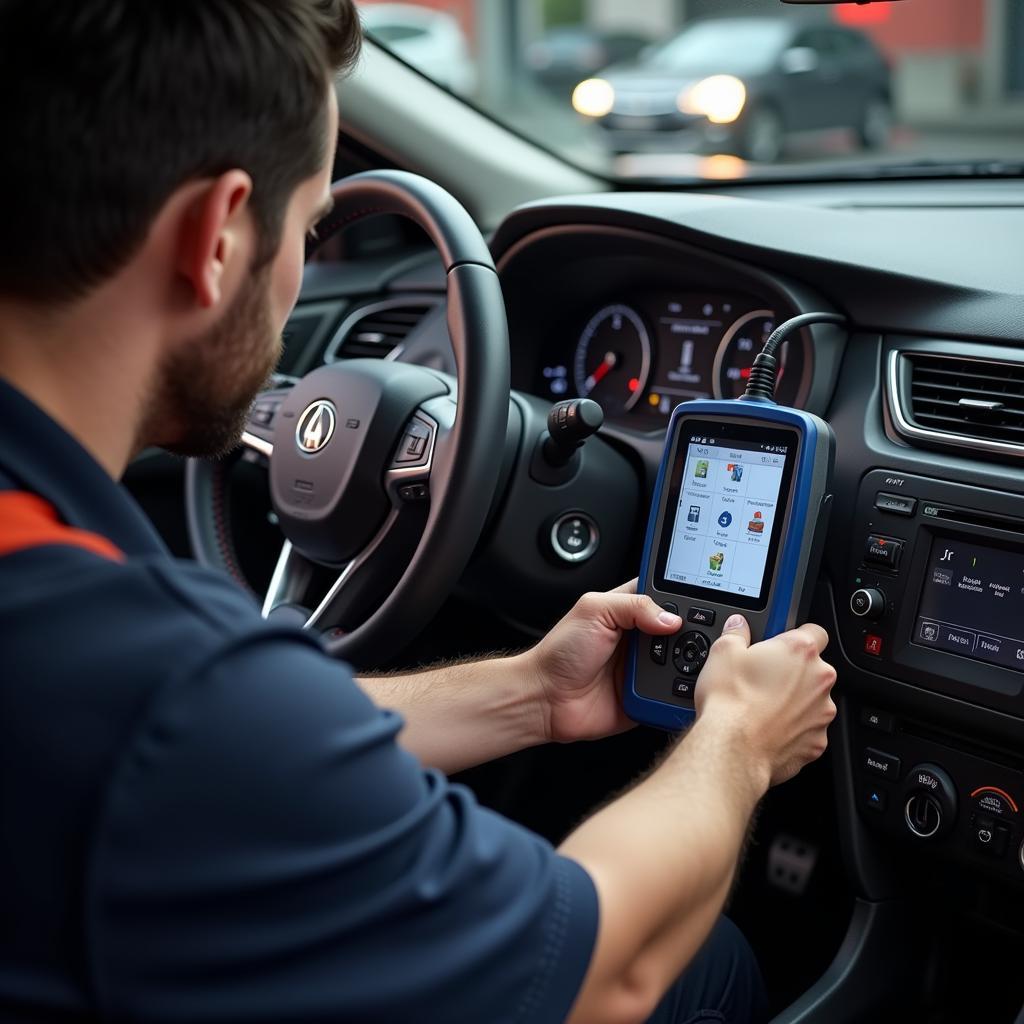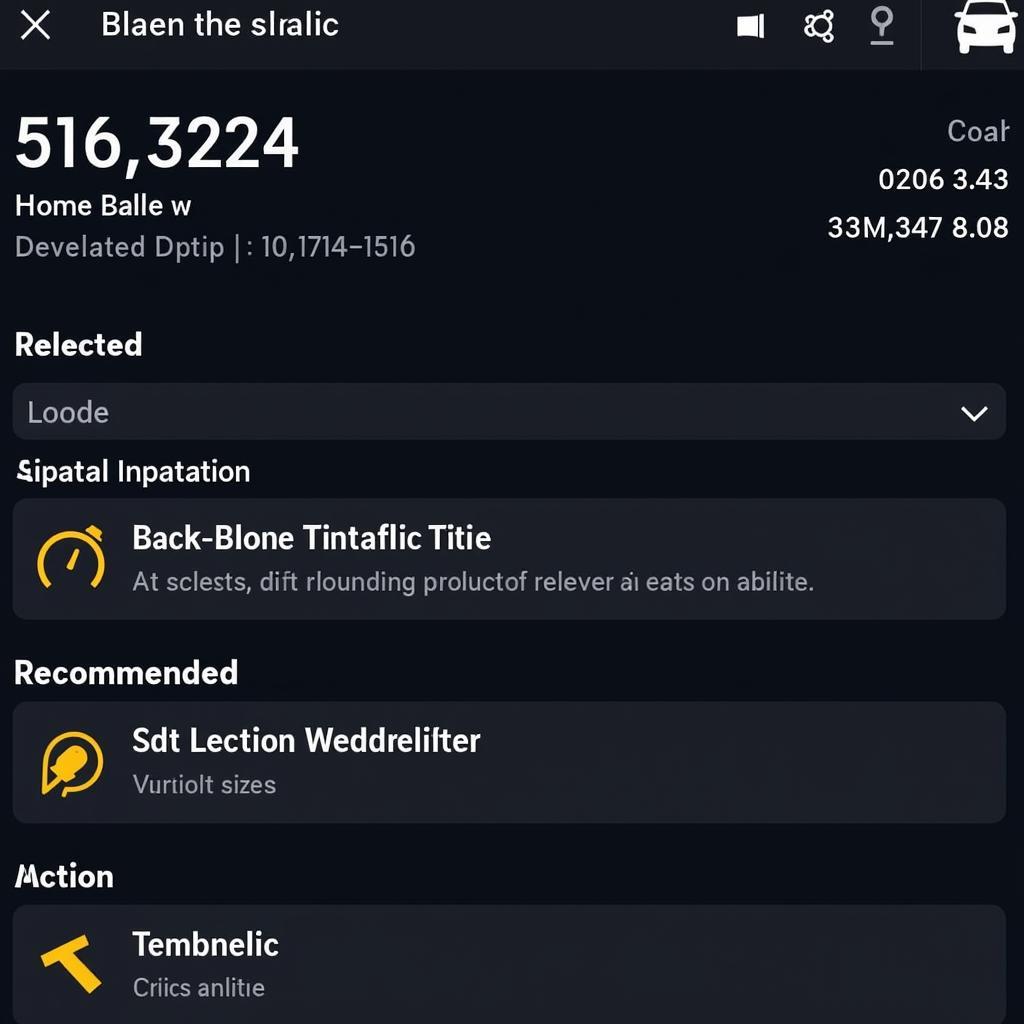Knowing how long a car diagnostic takes can be helpful when planning your day. While it can be a quick process, several factors can affect the timeframe.
 Car Diagnostic Process
Car Diagnostic Process
Factors Affecting Car Diagnostic Time
The duration of a car diagnostic can vary from a few minutes to several hours depending on these key factors:
- Complexity of the issue: A simple problem, like a loose gas cap triggering a check engine light, can be diagnosed quickly. However, complex issues like engine misfires or electrical faults require more time to trace the root cause.
- Type of diagnostic equipment: Advanced scanners can retrieve data faster and provide more detailed information, shortening the diagnostic time compared to basic scanners.
- Mechanic’s experience: An experienced mechanic can quickly identify potential issues based on symptoms and error codes, leading to a faster diagnosis.
- Vehicle make and model: Some vehicles have more complex systems, potentially increasing the time required for diagnosis.
Typical Time Frames for Car Diagnostics
While the exact time can vary, here are some general estimates:
- Basic Scan: A basic scan, which reads error codes, usually takes 30 minutes to an hour.
- In-depth Diagnostic: For complex problems, a thorough diagnosis involving visual inspections, component testing, and specialized equipment can take several hours or even days to complete.
Understanding the Diagnostic Process
The car diagnostic process usually involves the following steps:
- Connecting a scan tool: The mechanic connects a scan tool to the vehicle’s OBD-II port to retrieve diagnostic trouble codes (DTCs).
- Reading and interpreting codes: The mechanic analyzes the DTCs to understand the nature of the problem.
- Performing visual inspections: The mechanic visually inspects the vehicle for any obvious issues related to the codes.
- Conducting component tests: Based on the DTCs and visual inspection, the mechanic performs specific tests to pinpoint the faulty component.
- Recommending repairs: Once the root cause is identified, the mechanic provides a diagnosis report and recommends necessary repairs.
 Car Diagnostic Report
Car Diagnostic Report
Getting the Most Out of Your Diagnostic Session
- Provide a detailed history: Be prepared to share your car’s symptoms, any recent repairs, and any unusual noises or smells you’ve noticed. This information can help the mechanic narrow down the potential causes.
- Ask questions: Don’t hesitate to ask your mechanic to explain the diagnostic process, the meaning of the codes, and the recommended repairs. A good mechanic will be happy to address your concerns.
FAQs
Q: Does a car diagnostic fix the problem?
A: No, a car diagnostic itself doesn’t fix the problem. It identifies the root cause of the problem so that the mechanic can recommend the appropriate repairs.
Q: How much does a car diagnostic cost?
A: The cost of a car diagnostic can range from $50 to $200 or more depending on the complexity of the problem, the location, and the mechanic’s hourly rate. Some auto repair shops may offer a free diagnostic with a repair service.
Need Help with Your Car’s Diagnosis?
Contact us today via WhatsApp: +1(641)206-8880, or Email: [email protected]. Our expert team is available 24/7 to provide guidance and support. We can also help you find a qualified mechanic in your area.

Leave a Reply